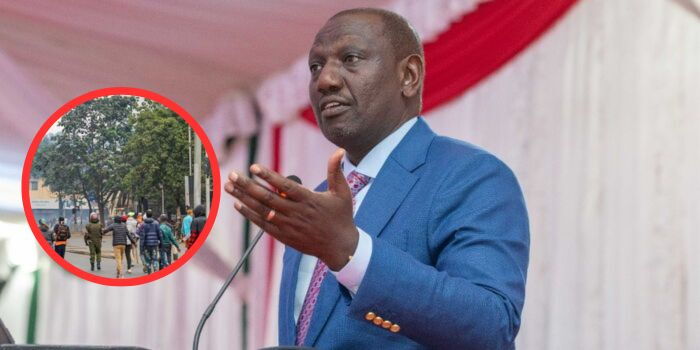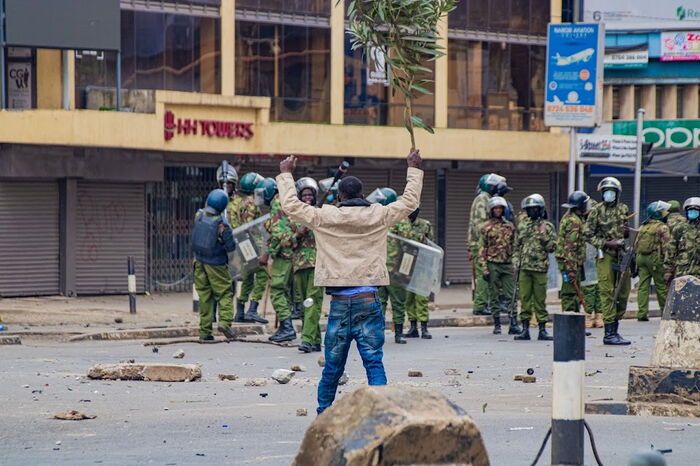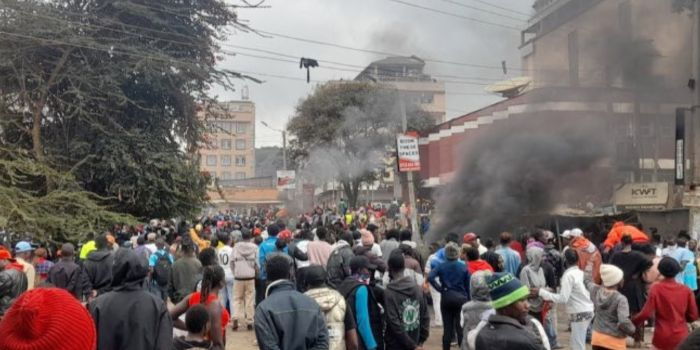President William Ruto has ignited fierce debate and international concern after boldly instructing Kenyan police to “shoot Goons in the leg” rather than kill them. His remarks come at a volatile time for the country, as youth-led protests continue to sweep across the nation demanding accountability, reforms, and an end to government excesses.
Speaking on Wednesday, July 9, during the launch of the Police Housing Project at Kilimani Police Station in Nairobi, a visibly angry Ruto warned violent demonstrators and accused political saboteurs of plotting to destabilize Kenya through unconstitutional means.
“Anyone deciding to storm a person’s business or a police station should be shot in the leg. Thereafter, they can go to court and see what follows next,” Ruto said in his fiery address to police officers.
The President’s statement sent shockwaves through the country, with critics immediately accusing him of promoting extrajudicial violence, while others hailed the directive as a necessary step to curb what he described as a “war” against public order.
“We will not allow it. We are coming for you,” Ruto warned. “Those plotting to remove me from office before 2027 must know we will not let them destroy this country through unconstitutional means.”
Ruto’s remarks come just days after Kenya National Commission on Human Rights (KNCHR) confirmed that 31 protesters had died during the Saba Saba Day demonstrations on Monday, July 7. According to KNCHR Vice-Chairperson Dr. Raymond Nyeris, these fatalities occurred during violent clashes across multiple regions, further intensifying the national crisis.
Ruto did not mince words as he equated attacks on police stations and state institutions to acts of war.
“Anyone attacking our police officers, police stations, or installations is effectively declaring war,” he declared. “We will not tolerate it. We cannot run a country ruled by terror or chaos.”
He also called out unnamed figures he claimed were funding and inciting chaos, accusing them of exploiting youth unemployment and tribal divisions for political gain.
“Moi, Kibaki, and Uhuru Kenyatta were all presidents before me. So what’s all the fuss about? Why are all these problems being brought to me?” he asked. “Let’s end all the contempt and tribalism.”
While Ruto’s supporters argue that the President is defending national stability, human rights activists have expressed alarm at his comments. Legal experts suggest the directive may encourage police brutality and infringe upon constitutional rights.
As unrest grows and protests become more organized, the government finds itself caught between maintaining order and respecting democratic rights. What remains clear is that Ruto’s hardline stance has dramatically escalated political tensions in a country already on the edge.






